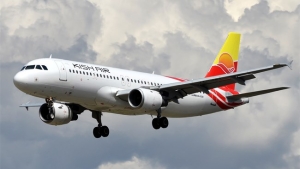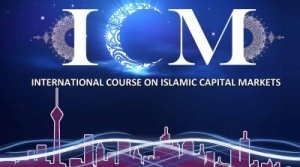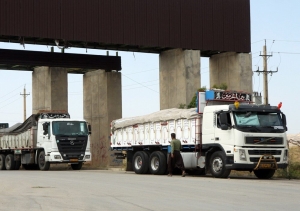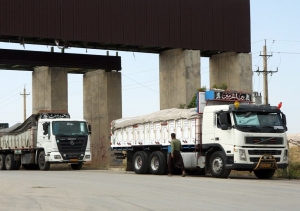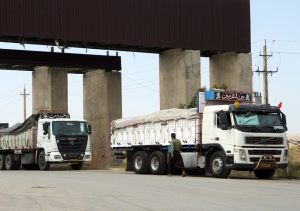ecocci
THE OIC - 2025 PROGRAMME OF ACTION
Iranian airline launches flights to Afghanistan
Kish Air, an Iranian semi-state airline, on Friday commenced its flights to Afghanistan, with the first flight landing in southern Kandahar province, Afghanistan’s Pajhwok news reported.
In this regard a ceremony was held at Ahmad Shah Baba Airport in Kandahar city, in which Deputy Director of Afghanistan Aviation Authority, the Director of Foreign Affairs in Kandahar, the Iranian Consul General and a number of other officials were present.
Ali Reza Hajizadeh, Iranian Consul General in Kandahar, said the Kish Air would have flights from Iran to Kabul and Kandahar twice a week to provide people with more travel facilities.
He said that Iran expects other airlines to start their flights to Afghanistan in order to further expand economic relations between the two nations.
Tehran to host 14th International Forum on Islamic Capital Market in early Nov
TEHRAN - The 14th International Forum on Islamic Capital Market (ICM) is going to be held in Tehran during November 6-7, Vice Chairman of Iran Securities and Exchange Organization (SEO) Bahador Bijani said.
The event is organized by SEO with the aim of promoting Islamic financial instruments, Bijani said.
The main topics that are going to be covered in the event include the perspective of the Islamic capital market in the digital era, fintech in the Islamic capital market, digitalization of the Islamic capital market, and alternative investments in the Islamic capital market, according to the official.
Bijani noted that each of the mentioned topics will be examined in detail in separate sections.
For example, in the fintech section, topics such as fintech opportunities and challenges in the Islamic capital market, Islamic fintech and regulatory framework, and artificial intelligence and Islamic fintech will be discussed, he explained.
Digitalization of the Islamic capital market will also be explored in the form of topics such as the use of blockchain and smart contracts in the Islamic capital market, digital currency, investment and the future of the Islamic capital market, tokenization of assets (financial and real) through the Islamic capital market and Mataverse and Islamic capital market.
As for the alternative investments in the Islamic capital market, the official said: “in this section, socially responsible investment (SRI), environmental, social and governance (ESG) approaches, corporate governance principles in the Islamic capital market, and new models of financing by investment funds as well as Exchangeable Trade Funds (ETF) are among the topics that will be discussed.”
Due to the coronavirus pandemic, SEO held the previous two editions of the ICM virtually, but since the severity of the disease has decreased recently, this year the forum is planned to be held physically.
ICCIMA stresses need for establishing railway regulatory body
TEHRAN - During a meeting of the Iran Chamber of Commerce, Industries, Mines and Agriculture (ICCIMA)’s Transport and Logistics Committee on Saturday, the members of the committee stressed the need for establishing a regulatory body in the country’s railway industry, the ICCIMA portal reported.
The attendees of the mentioned meeting emphasized that necessary provisions should be made in the Seventh Five-year National Development Plan for the operation of a regulatory body in the railway industry and the private sector should also be able to have a stronger role in the industry.
Speaking at the meeting, Ali Hosseini, the head of the ICCIMA Transport and Logistics Committee enumerated some of the challenges and problems of the country’s transportation industry and said: “The transportation industry is one of the industries that operate in direct connection with all economic sectors and the conditions governing it have significant effects on the market. Therefore, paying attention to the needs of this industry should be the priority in defining the country's economic and legislative programs.”
He further pointed to some of the issues of the railway industry, saying: “There is not enough productivity in this industry. We have problems in railway management and our approach in this field is uneconomical. Due to the low speed of rail transportation and the lack of efficiency, a regulatory body should be established. If we want to reach the transit goals of 30 to 50 million tons per year, the rail industry must be developed.”
Iran inks trilateral customs co-op MOU with Russia, Azerbaijan
TEHRAN – The Islamic Republic of Iran Customs Administration (IRICA) signed a trilateral memorandum of understanding (MOU) with the customs of Russia and Azerbaijan on Monday to facilitate the transit of goods between the parties, IRNA reported.
According to IRICA Head Alireza Moghadasi, based on the said MOU Iran's access to Russia will be facilitated through Azerbaijan’s land borders.
“Iranian trucks won’t need to wait in long lines to reach Russia and goods will reach their destination more quickly,” Moghadasi said.
The official noted that the activity of all commercial corridors passing through Iran has increased over the past year and commercial exchanges and transit of goods have risen significantly.
“Iran’s customs diplomacy has been developed considering the country’s membership in the World Customs Organization as well as other conventions, especially with neighboring countries, and this has been the government's priority regarding foreign trade,” the IRICA head said in an interview with national TV.
Emphasizing that good measures have been taken to facilitate trade in different corridors, Moghadasi said: “The Islamabad-Tehran-Bazargan route for sending goods to Europe, as well as the Emirates-Iran-Turkey, the South-North and East-West corridors and Russia-Kazakhstan-Turkmenistan-Iran-India are the routes whose activity has been expanded to increase trade and transit.”
According to the official, since the current government took office in August 2021, the transport policy of Iran has actively focused on close cooperation with the neighboring countries to enhance regional connectivity.
Moghadasi noted that for the first time Iran has been granted permission to launch an Asia-Pacific Regional Training Center for transport and transit courses, saying: “We can invite different countries for training, and there are many supporting institutions in this regard.”
Regarding the control of smuggling from the country's borders, the official said: “vulnerable border points and methods of smuggling have been identified so that they can be eliminated with timely planning and taking effective measures.”
The policy of paying attention to neighbors and developing political and economic relations with neighboring countries in the current government, increasing attention to road and rail routes in the world, and the efforts and cooperation of transportation and trade-related organizations in establishing or activating corridors through the country have led to significant growth in transit of goods through Iran.
Iran inks trilateral customs co-op MOU with Russia, Azerbaijan
TEHRAN – The Islamic Republic of Iran Customs Administration (IRICA) signed a trilateral memorandum of understanding (MOU) with the customs of Russia and Azerbaijan on Monday to facilitate the transit of goods between the parties, IRNA reported.
According to IRICA Head Alireza Moghadasi, based on the said MOU Iran's access to Russia will be facilitated through Azerbaijan’s land borders.
“Iranian trucks won’t need to wait in long lines to reach Russia and goods will reach their destination more quickly,” Moghadasi said.
The official noted that the activity of all commercial corridors passing through Iran has increased over the past year and commercial exchanges and transit of goods have risen significantly.
“Iran’s customs diplomacy has been developed considering the country’s membership in the World Customs Organization as well as other conventions, especially with neighboring countries, and this has been the government's priority regarding foreign trade,” the IRICA head said in an interview with national TV.
Emphasizing that good measures have been taken to facilitate trade in different corridors, Moghadasi said: “The Islamabad-Tehran-Bazargan route for sending goods to Europe, as well as the Emirates-Iran-Turkey, the South-North and East-West corridors and Russia-Kazakhstan-Turkmenistan-Iran-India are the routes whose activity has been expanded to increase trade and transit.”
According to the official, since the current government took office in August 2021, the transport policy of Iran has actively focused on close cooperation with the neighboring countries to enhance regional connectivity.
Moghadasi noted that for the first time Iran has been granted permission to launch an Asia-Pacific Regional Training Center for transport and transit courses, saying: “We can invite different countries for training, and there are many supporting institutions in this regard.”
Regarding the control of smuggling from the country's borders, the official said: “vulnerable border points and methods of smuggling have been identified so that they can be eliminated with timely planning and taking effective measures.”
The policy of paying attention to neighbors and developing political and economic relations with neighboring countries in the current government, increasing attention to road and rail routes in the world, and the efforts and cooperation of transportation and trade-related organizations in establishing or activating corridors through the country have led to significant growth in transit of goods through Iran.
Iran inks trilateral customs co-op MOU with Russia, Azerbaijan
TEHRAN – The Islamic Republic of Iran Customs Administration (IRICA) signed a trilateral memorandum of understanding (MOU) with the customs of Russia and Azerbaijan on Monday to facilitate the transit of goods between the parties, IRNA reported.
According to IRICA Head Alireza Moghadasi, based on the said MOU Iran's access to Russia will be facilitated through Azerbaijan’s land borders.
“Iranian trucks won’t need to wait in long lines to reach Russia and goods will reach their destination more quickly,” Moghadasi said.
The official noted that the activity of all commercial corridors passing through Iran has increased over the past year and commercial exchanges and transit of goods have risen significantly.
“Iran’s customs diplomacy has been developed considering the country’s membership in the World Customs Organization as well as other conventions, especially with neighboring countries, and this has been the government's priority regarding foreign trade,” the IRICA head said in an interview with national TV.
Emphasizing that good measures have been taken to facilitate trade in different corridors, Moghadasi said: “The Islamabad-Tehran-Bazargan route for sending goods to Europe, as well as the Emirates-Iran-Turkey, the South-North and East-West corridors and Russia-Kazakhstan-Turkmenistan-Iran-India are the routes whose activity has been expanded to increase trade and transit.”
According to the official, since the current government took office in August 2021, the transport policy of Iran has actively focused on close cooperation with the neighboring countries to enhance regional connectivity.
Moghadasi noted that for the first time Iran has been granted permission to launch an Asia-Pacific Regional Training Center for transport and transit courses, saying: “We can invite different countries for training, and there are many supporting institutions in this regard.”
Regarding the control of smuggling from the country's borders, the official said: “vulnerable border points and methods of smuggling have been identified so that they can be eliminated with timely planning and taking effective measures.”
The policy of paying attention to neighbors and developing political and economic relations with neighboring countries in the current government, increasing attention to road and rail routes in the world, and the efforts and cooperation of transportation and trade-related organizations in establishing or activating corridors through the country have led to significant growth in transit of goods through Iran.
Tourism
ECO region with an area of more than 8 million square kilometers stretching from central to south and south-west Asia and a population of around 450 million inhabitants is well-known for its natural beauties, as well as diversity of its historical-cultural heritage. In this respect the region has a significant potential to be one of the major tourism destinations in the world, albeit not duly explored. The Region is one of the world’s richest in terms of historical and cultural heritage and echoes memoires of the ancient Silk Road.
As one of the largest and fastest growing economic sectors in the world, tourism is well-positioned to foster economic growth and development at all levels and provide income through job creation. The ever increasing and contribution of tourism to the world economy and less investment requirements and environmental effects makes it inevitable to adopt plans and strategies for development of tourism on national and regional basis.
Transport and Connectivity

